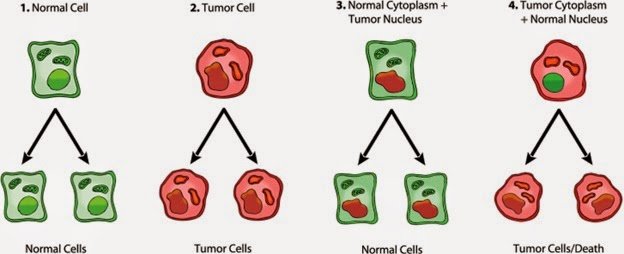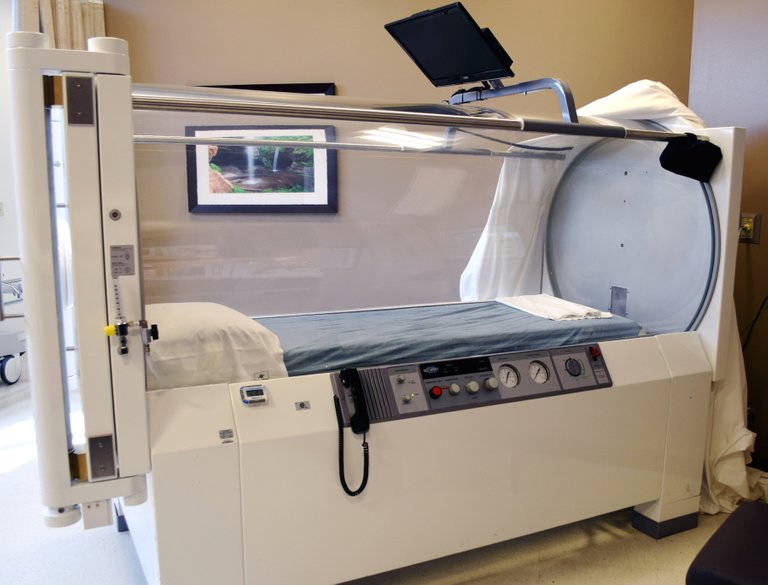Now if one were to look up cancer online the definition would go something like this “A disease in which abnormal cells divide uncontrollably and destroy body tissue.” Which has led many to believe cancer is a genetic disorder that occurs in the cells of the body. After all many things that increase ones risk for cancer also damages the DNA. Things such as ageing, radiation, chemicals, and viruses exposure all of which damages the DNA. However what if this underline theory of cancer is wrong what would that mean? We have spent billions of dollars in trying to figure out cancer and cancer treatment without much luck and why. Could it be that the vast majority of scientist are wrong in believing that cancers come form damaged DNA. The Cancer Genome Atlas project has spent a lot of time and effort into the genetic disorder theory of cancer. It was the largest government project ever conceived to sequence the genomes of cancer cells. It involved 10,000 times the amount of genetic sequencing done by the Human Genome Project. The goal was to ferret out mutations found within cancer cells. But what they found was simply more confusion for not only was they little to no common mutations among different types of cancers from person to person and ever from one cancer cell to another of the same cancer from the same person. The mutations for the most part seem to be truly random.

An experiment was done in which they thought that once and for all they would be able to prove that mutated DNA would result in cancer. The experiment removed the cancer cell nuclei (containing mutated DNA)and was transplanted into cells with healthy cytoplasm. So if DNA was really the reason for cancer, then when the cell would divided the daughter cells would also be cancerous. However that wasn’t the case instead a healthy non-cancer cell was formed. And when nuclei from healthy, non-cancerous cells (with normal, non-mutated DNA) were transplanted into cancers cytoplasm, the daughter cells WERE CANCEROUS. So we have a situation here in which mutated DNA did not result in cancer, but damaged cytoplasm/mitochondria did.
This experiment showed that cancer wasn’t really caused by mutated DNA, but by the damaged mitochondria in the cell. Tumor cells arise from defects in the cytoplasm rather than from defects in the nucleus. And this is known as the Metabolic Theory of Cancer.
Cancer cells are unable to digest fats only carbohydrates (or sugars). Unlike normal cells they use anaerobic energy generation (without oxygen) as appose to aerobic energy generation (with oxygen) of normal cells. This was Dr. Warburg's theory of cancer and why if you have cancer you should go on a ketone diet to stave out the cancer cells.

In cancer cells there are radically reduced number of mitochondria in the cells. Typically there are several hundred to several thousand in each cell, comprising about one-third to 50 percent of the volume of the inside of each cell. These generate the ATP, the energy, of your cells. If you have a radical reduction of mitochondria, and the ones that are left are mostly dysfunctional, if they're working at all. These cancer cells have no choice but to revert to this primitive and inefficient metabolism. Healthy mitochondria send these epigenetic signals between themselves and the nucleus. This epigenetic signaling from the mitochondria is actually what's responsible for initiating a significant percentage of the genetic damage that has been identified from the DNA sequencing project. So it’s the damage mitochondria that cause the DNA mutation and the cancer not the other way around.
To clarify even further, cancer cells burn glucose, an inherently "dirty" fuel as it generates far more reactive oxygen than fat and ketones. But in order to burn ketones, the cell must be healthy and normal. Cancer cells cannot burn fat, and this is the heart of successful cancer treatment, and why ketogenic diets appear to be so effective. They essentially starve the cancer, while nourishing healthy cells.
So what one to do if they god forbid have cancer. Now I am not offering any kind of medical advice here just my own opinion after researching a bit on the mater. So be sure to ask your doctor (or medical provider) and do your own research. But after reading Travis Christofferson book called "Tripping Over the Truth: The Return of the Metabolic Theory of Cancer Illuminates a New and Hopeful Path to a Cure." Which I highly recommend you read, and where I got most of my info from. I would go on a ketogenic diet and hyperbaric oxygen therapy (HBOT).

Now I have already explained a bit about the ketogenic diet but what is HBOT. Hyperbaric oxygen therapy (HBOT) is a medical treatment which enhances the body's natural healing process by inhalation of 100% oxygen in a total body chamber, where atmospheric pressure is increased and controlled. It is used for a wide variety of treatments usually as a part of an overall medical care plan.

HBOT is a complimentary treatment for cancer patients undergoing radiation treatment. HBOT has been shown to reduce inflammation in bones and adjacent tissues where radiotherapy creates an excess amount of reactive oxygen species. It also helps with the regeneration of blood vessels that are damaged by radiation.
A 2006 study, in Japan, involving patients with brain tumors receiving radiation and chemotherapy experienced much longer survival times and reduced side effects when using HBOT as a complimentary treatment. Another 2007 study showed extended survival times and reduced side effects using HBOT with radiation treatment in patients with glioma tumors.
Dr. Warburg discovered that in the presence of oxygen, cancer cells overproduce lactic acid. This is known as The Warburg Effect. A cell can produce energy in two ways: aerobically, in the mitochondria, or anaerobically, in the cytoplasm, which generates lactic acid — a toxic byproduct.
So a treatment of a ketogenic diet and hyperbaric oxygen therapy along with the stranded care (radiation, chemo, and surgery) should radically improve one’s chances of surviving cancer.
I don't have cancer or heart disease and am not so fat (though I'd like to fit comfortably in some old clothes) but I've preemptively gone on a ketogenic diet, after doing a lot of research on it.
One of the most entertaining documentaries to watch is Fat Head, which pokes fun at the Super Size Me documentary while talking about health and diet.
Nice content. I up-vote it because it is an important issue.
Was this automatically translated from another language? It's very jarring to read.